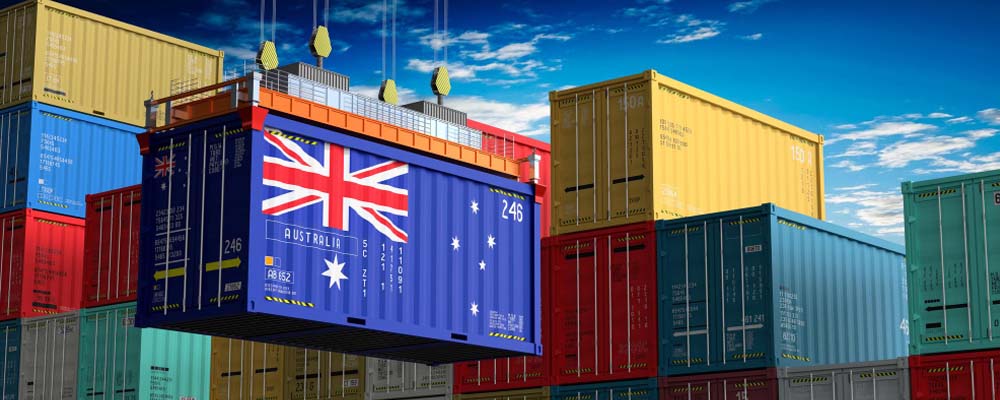
Venturing into the Australian market can be a lucrative opportunity for businesses worldwide. From its robust economy to its strategic location in the Asia-Pacific region, Australia offers numerous advantages for exporters. However, entering this market requires a deep understanding of its regulatory landscape, logistical considerations, and cultural nuances. This comprehensive guide aims to equip freight forwarding companies, logistics providers, importers and exporters, customs brokers, manufacturers and producers, e-commerce businesses, and other industry-related professionals with everything they need to know about exporting to Australia.
By the end of this post, you will have a clear understanding of the key regulations, logistical challenges, cultural considerations, and practical tips to ensure a smooth export process to the Land Down Under.
Why Export to Australia?
Economic Stability and Growth
Australia boasts one of the world’s most stable economies, characterized by consistent growth and low unemployment rates. This economic stability makes it an attractive destination for exporters looking for reliable markets. Moreover, Australia’s GDP has been growing steadily over the years and is expected to continue on an upward trend. This growth, coupled with its strong consumer market, provides exporters with a vast potential customer base.
Proximity to the Asia-Pacific Region
Australia’s location in the heart of the Asia-Pacific region makes it an ideal gateway for businesses looking to enter this rapidly growing market. With trade agreements in place with countries like China, Japan, South Korea, and ASEAN nations, exporting to Australia can open up doors to these lucrative markets as well.
High-Quality Standards and Strong Demand for Imported Goods
Australian consumers have high standards when it comes to quality products. As a result, there is a strong demand for imported goods that meet these standards. This presents an excellent opportunity for exporters to tap into this market, especially in industries such as food and beverages, fashion and beauty, health supplements, and technology.
Key Regulations to Consider
Customs Clearance Procedures
As with any country, there are specific customs clearance procedures that must be followed when exporting to Australia. These include obtaining the necessary permits and licenses, declaring goods accurately, and complying with packaging requirements. It is essential to work closely with a reputable customs broker who has a thorough understanding of these procedures to avoid delays or penalties.
Tariffs and Taxes
Australia has a relatively low tariff regime compared to other developed countries. However, certain goods and services are subject to high tariffs, making it crucial for exporters to research and understand the specific taxes and charges that apply to their products.
Product Standards and Regulations
Australian product standards and regulations are rigorous, aimed at protecting consumers’ health, safety, and environment. It is essential for exporters to ensure their products meet these standards before entering the market. This may involve obtaining certifications or testing from approved bodies.
 Understanding Australia’s Regulatory Environment
Understanding Australia’s Regulatory Environment
Import Regulations and Standards
Australia has stringent import regulations and standards to ensure the safety and quality of goods entering the country. Exporters must familiarize themselves with these regulations to avoid delays and penalties. Key areas to focus on include quarantine requirements, product labeling, and safety standards.
Customs and Tariffs
Understanding Australia’s customs procedures and tariff rates is crucial for successful exporting. The Australian Border Force (ABF) oversees customs regulations, and exporters must comply with documentation requirements, tariff classifications, and valuation rules. Utilizing a customs broker can simplify this process and ensure compliance.
Free Trade Agreements
Australia has several Free Trade Agreements (FTAs) with countries worldwide, reducing or eliminating tariffs on many goods. Exporters should explore these agreements to take advantage of preferential treatment and cost savings. Notable FTAs include those with the United States, China, Japan, and South Korea.
Navigating Logistical Challenges
Shipping Routes and Methods
Selecting the right shipping routes and methods is vital for timely and cost-effective delivery. Sea freight is the most common method for bulk goods, while air freight is preferred for high-value or time-sensitive items. Partnering with experienced logistics providers can help optimize shipping strategies.
Transportation Infrastructure
Australia’s well-developed transportation infrastructure includes major ports, airports, and road networks. Understanding the connectivity and capacity of these infrastructures can aid in planning efficient logistics operations. Major ports include Sydney, Melbourne, Brisbane, and Perth, each offering unique advantages.
Warehousing and Distribution
Efficient warehousing and distribution are essential for maintaining product quality and meeting customer demands. Australia offers various warehousing options, including bonded warehouses that defer duty payments until goods are sold. Collaborating with local logistics vendors can streamline distribution processes.
Cultural Considerations in Business
Communication Styles
Australians value direct and clear communication. Building trust and establishing strong relationships are essential for successful business dealings. Understanding local etiquette, such as punctuality and straightforwardness, can enhance your interactions.
Market Preferences
Australian consumers have distinct preferences and expectations. Tailoring your products and marketing strategies to align with local tastes can significantly impact your success. Conducting market research and engaging with local partners can provide valuable insights.
Building Relationships
Networking and building relationships are crucial in the Australian business landscape. Participating in industry events, trade shows, and business forums can help establish connections and foster trust with potential partners and customers.
 Practical Tips for Exporting to Australia
Practical Tips for Exporting to Australia
Conduct Thorough Market Research
Before entering the Australian market, conduct comprehensive market research to identify demand, competition, and potential challenges. Understanding market dynamics will help you make informed decisions and tailor your approach.
Leverage Technology and E-commerce
Australia has a highly developed e-commerce market, making it an ideal platform for reaching consumers. Utilizing online sales channels, digital marketing, and technology-driven logistics solutions can enhance your reach and efficiency.
Partner with Local Experts
Collaborating with local experts, such as customs brokers, legal advisors, and logistics providers, can simplify the export process. These professionals have in-depth knowledge of local regulations and practices, ensuring compliance and smooth operations.
Understand Payment and Financing Options
Familiarize yourself with payment terms and financing options available for international trade. Secure payment methods, such as letters of credit, can mitigate risks and ensure timely payments. Additionally, exploring export financing programs can provide financial support.
Stay Updated on Regulatory Changes
Regulations and standards can evolve, impacting your export operations. Staying informed about any changes in Australian import regulations, trade agreements, and industry trends will help you adapt and remain compliant.
Conclusion
Exporting to Australia presents a wealth of opportunities for businesses willing to invest in understanding its unique market dynamics. By mastering the regulatory environment, navigating logistical challenges, and considering cultural nuances, your business can tap into the potential of this vibrant market.
Remember, thorough preparation and collaboration with local experts are key to a successful export strategy. Whether you’re a freight forwarding company, logistics provider, importer, exporter, or any other industry professional, these insights will help you pave the way for a fruitful venture into the Australian market.
For those looking to further refine their export strategies and gain personalized insights, contact us. We are dedicated to supporting your success at every step of the journey.




 Understanding Australia’s Regulatory Environment
Understanding Australia’s Regulatory Environment Practical Tips for Exporting to Australia
Practical Tips for Exporting to Australia



